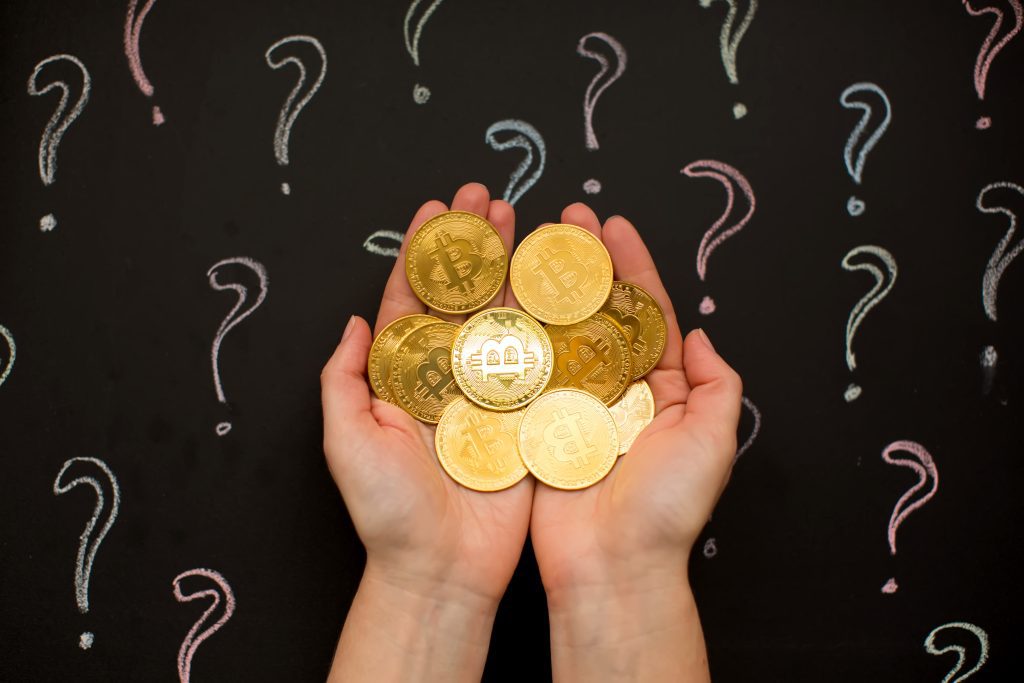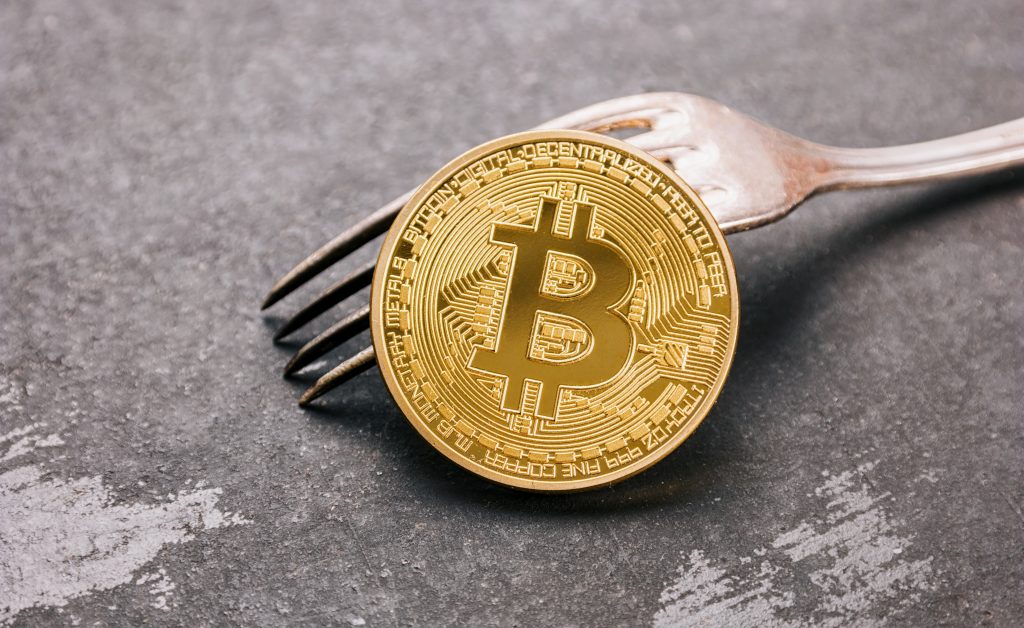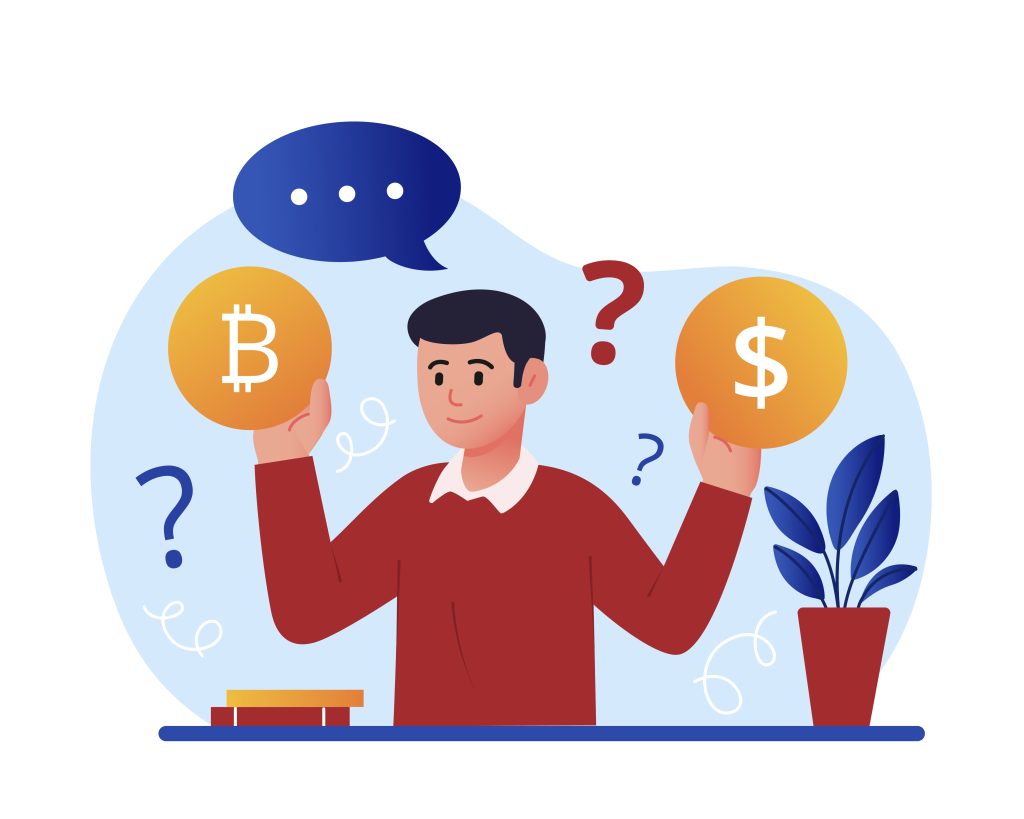In recent years, Bitcoin has taken the world by storm, emerging as a popular alternative to traditional currencies and capturing the attention of investors, businesses, and individuals alike. With its unique blend of decentralization, security, and global accessibility, it’s no wonder that Bitcoin has become the subject of much curiosity and discussion. In this comprehensive guide, we’ll delve into some of the most frequently asked questions about Bitcoin, demystifying its inner workings and addressing common misconceptions. Whether you’re a seasoned cryptocurrency enthusiast or a newcomer to the world of digital assets, this ultimate guide will help you gain a better understanding of the fascinating world of Bitcoin.
Understanding Bitcoin Technology: How It Works?


At the heart of Bitcoin lies blockchain technology, a revolutionary system that allows for secure, decentralized transactions without the need for intermediaries like banks. In essence, a blockchain is a distributed digital ledger that records every Bitcoin transaction ever made. Each transaction is grouped with others to form a “block,” which is then cryptographically secured and linked to the previous block, creating a “chain” of blocks. This innovative structure ensures that transactions are transparent, tamper-proof, and irreversible.
Miners, or individuals who use powerful computers to solve complex mathematical problems, play a crucial role in the Bitcoin ecosystem. By validating transactions and creating new blocks, miners help maintain the security and integrity of the network. In return, they’re rewarded with newly created Bitcoins, a process known as “mining.” This decentralized, consensus-driven approach to transaction validation is what sets Bitcoin apart from traditional financial systems.
Is Bitcoin legitimate money? – Acceptance as a currency
YES! It is as real as the dollars in your pocket. It is perhaps even more real than fiat money.
While Bitcoin may be a relatively new phenomenon, it exhibits many characteristics that make it a legitimate form of money. First and foremost, it’s widely accepted as a medium of exchange, with an ever-growing number of businesses and individuals accepting Bitcoin for goods and services. Additionally, its finite supply (capped at 21 million coins) and controlled rate of issuance ensure that it maintains its scarcity and value over time.
Bitcoin’s divisibility (it can be divided into fractions as small as one hundred millionth of a coin, or a “Satoshi”) allows for precision in transactions, making it a viable currency for everyday use. Furthermore, its borderless nature and ability to bypass traditional banking systems make it particularly appealing for international transactions and remittances.
Although Bitcoin continues to face regulatory hurdles and skepticism from some quarters, its unique features and increasing acceptance worldwide are solidifying its status as a genuine form of money and a powerful tool for financial innovation.
Should you invest in Bitcoin Today? – Analyzing investment potential


Even though Bitcoin has been around for more than a decade, it’s still a viable investment option for those looking to diversify their portfolios. Bitcoin’s impressive historical returns and its potential for long-term growth have made it a popular choice among both retail and institutional investors. However, like any investment, Bitcoin comes with its fair share of risks, including price volatility, regulatory challenges, and security concerns.
Before investing in Bitcoin, it’s essential to carefully consider your risk tolerance, financial goals, and investment strategy. Additionally, it’s wise to research the technology and market trends to make an informed decision. While some investors have made significant profits by investing in Bitcoin, past performance doesn’t guarantee future results. As such, it’s crucial to approach any investment with a healthy dose of caution and a well-thought-out plan.
How do you buy Bitcoin? – A step-by-step guide to purchasing Bitcoin
Purchasing Bitcoin is a relatively straightforward process, even for beginners. Here’s a simple step-by-step guide to help you begin your crypto journey:
- Choose a reputable cryptocurrency exchange, such as Coinbase, Binance, or Kraken, and create an account. Make sure to verify your identity, as most exchanges require this for security purposes.
- Connect your bank account or credit card to your exchange account. This will enable you to deposit funds for buying Bitcoin.
- Once your account has the funds, navigate to the exchange’s trading platform and place an order to buy Bitcoin. You can either enter a specific amount in your local currency or choose to purchase a specific fraction of a Bitcoin.
- Confirm your order, and the exchange will process the transaction. Your newly purchased Bitcoin will be stored in your exchange account’s wallet.
- For added security, transfer your Bitcoin to a personal wallet, such as a hardware or software wallet, to safeguard your funds from potential hacks or exchange downtime.
What’s the ROI for investing in Bitcoin? – Estimating potential returns


Determining how much to invest in Bitcoin depends on various factors, such as your financial goals, risk tolerance, and investment horizon. While Bitcoin has shown significant growth over the years, it’s important to remember that its price can be highly volatile, with the potential for both substantial gains and losses.
When deciding how much to invest, consider adopting a balanced approach. Many financial experts recommend allocating a small percentage of your portfolio to Bitcoin and other cryptocurrencies, limiting your exposure to potential risks while still allowing for the possibility of attractive returns. As with any investment, it’s crucial to do your homework, stay informed about market trends, and be prepared to adjust your strategy as needed.
Who is Satoshi Nakamoto? – The mysterious creator of Bitcoin


Satoshi Nakamoto is the pseudonym used by the individual or group responsible for creating Bitcoin and its underlying blockchain technology. Despite extensive efforts to uncover their identity, Satoshi remains an enigma. They introduced Bitcoin in a 2008 whitepaper and launched the network in 2009 before fading into obscurity in 2010.
While the true identity of Satoshi remains unknown, their groundbreaking work has had a profound impact on the financial world. The creation of Bitcoin has spurred a wave of innovation in the realm of digital currencies and decentralized technologies, challenging traditional financial systems and paving the way for a new era of monetary innovation.
Where can you find a list of exchanges to trade any coin?
To find a list of cryptocurrency exchanges where you can trade various digital assets, you can rely on reputable websites that provide up-to-date information on exchange rankings, trading volumes, and supported cryptocurrencies.
Below is a list of the 7 most popular and trusted centralized exchanges for cryptocurrencies:
These websites provide valuable data about each exchange, such as trading fees, available trading pairs, and user reviews. This information can help you make an informed decision when selecting the right exchange for your needs. Keep in mind that different exchanges may have varying levels of security, customer support, and regulatory compliance, so it’s essential to do thorough research before committing to a specific platform.
Here is a list of the 7 best DEX you can find:
Bitcoin Taxation: What are the Implications of Crypto Tax Rules?
Tax implications for Bitcoin and other cryptocurrencies vary depending on your jurisdiction and the nature of your transactions. In many countries, cryptocurrencies are treated as property for tax purposes, and transactions involving Bitcoin, such as trading, selling, or spending, may be subject to capital gains taxes.
Here are some general guidelines to help navigate cryptocurrency taxes:
- Keep detailed records: Document all your cryptocurrency transactions, including dates, amounts, and the fair market value at the time of each transaction. This information is crucial for calculating your capital gains or losses.
- Understand your jurisdiction’s tax laws: Research the specific tax laws and regulations governing cryptocurrencies in your country or consult a tax professional to ensure compliance.
- Report your cryptocurrency income: Depending on your jurisdiction, you may need to report income from mining, staking, or other cryptocurrency-related activities on your tax return.
- Consider tax planning strategies: Tax-loss harvesting, timing your trades, and utilizing tax-advantaged accounts may help minimize your tax liability.
Always consult a tax professional for personalized advice and stay up-to-date on your jurisdiction’s regulations regarding cryptocurrency taxation.
How do Bitcoin forks work? – The Mechanics of Bitcoin


A fork in the context of Bitcoin and other cryptocurrencies refers to a change in the underlying protocol or rules governing the blockchain network. Forks can be classified into two categories: hard forks and soft forks.
Hard forks are significant protocol changes that create a new blockchain, splitting from the original one. These changes are not backward-compatible, meaning nodes running the old software cannot validate transactions on the new chain, and vice versa. A notable example of a hard fork in the Bitcoin ecosystem is the creation of Bitcoin Cash, which increased the block size limit to facilitate faster transactions.
Soft forks, on the other hand, are backward-compatible protocol changes. They tighten or add new rules to the existing protocol without creating a separate blockchain. Nodes running the old software can still validate transactions, but they may not fully recognize the new rules. Segregated Witness (SegWit), a Bitcoin protocol upgrade that aimed to improve transaction capacity and reduce fees, is an example of a soft fork.
Forks can be controversial, as they mayfe lead to disagreements within the community and potentially impact the value and stability of the original cryptocurrency.
Which web3 wallets are best for storing digital currency?
A web3 wallet is a digital wallet that allows users to interact with decentralized applications (dApps) built on blockchain platforms. When it comes to securing your digital currencies, it’s crucial to choose a reliable and secure wallet. Some popular web3 wallets include:
- MetaMask: A widely-used browser extension wallet that supports Ethereum-based tokens and dApps. It’s user-friendly and allows you to interact seamlessly with a wide range of decentralized platforms.
- Trust Wallet: A mobile wallet that supports multiple cryptocurrencies, including Ethereum, Binance Smart Chain, and other blockchains. Trust Wallet also offers a built-in dApp browser for easy access to decentralized applications.
- Ledger Nano X: A hardware wallet that provides enhanced security for your digital assets by storing private keys offline. The Ledger Nano X supports multiple cryptocurrencies and offers compatibility with various web3 wallets and platforms.
Before selecting a wallet, consider factors such as security, ease of use, and compatibility with your preferred cryptocurrencies and dApps.
Is Bitcoin anonymous? – The privacy and traceability in transactions
Bitcoin is often considered a pseudonymous currency, meaning that while transactions and wallet addresses aren’t directly linked to users’ identities, they can still be traced through the public blockchain. All Bitcoin transactions are recorded on a public ledger, allowing anyone to view the transaction history and balance of any Bitcoin address.
Although Bitcoin addresses don’t disclose personal information, various techniques, such as blockchain analysis and data correlation, can potentially link addresses to real-world identities. Additionally, most cryptocurrency exchanges and some wallet services require users to undergo identity verification procedures, further reducing anonymity.
For those seeking greater privacy, alternative cryptocurrencies, such as Monero and Zcash, offer enhanced anonymity features. However, keep in mind that increased privacy may also attract regulatory scrutiny or be associated with illicit activities.
How does Bitcoin mining work? – The role of miners in the Bitcoin ecosystem
Bitcoin mining is the process of validating and securing transactions on the Bitcoin network by solving complex mathematical problems. Miners compete to solve these problems, and the first miner to find a solution adds a new block of transactions to the blockchain, earning a reward in the form of newly minted Bitcoin and transaction fees.
Mining serves two primary purposes: it secures the Bitcoin network by verifying transactions and adding them to the public ledger, and it introduces new Bitcoin into circulation, functioning as a decentralized issuance mechanism. The mining process requires specialized hardware, such as Application-Specific Integrated Circuits (ASICs) or powerful graphics processing units (GPUs), as well as a significant amount of electricity.
As the Bitcoin network has grown, mining has become increasingly competitive, and the difficulty of mining adjusts periodically to maintain a steady rate of block creation. This has led to the emergence of large-scale mining operations and mining pools, where multiple miners combine their resources to increase their chances of earning rewards.
Where can I learn more about Bitcoin and Blockchain? – Knoledge Resources


There is a wealth of information available to those interested in learning more about Bitcoin, blockchain technology, and cryptocurrencies in general. Some reliable resources include:
- Books: “Mastering Bitcoin” by Andreas M. Antonopoulos, “The Bitcoin Standard” by Saifedean Ammous, and “Blockchain Basics” by Daniel Drescher are excellent starting points for learning about the technical and economic aspects of Bitcoin and blockchain technology.
- Online courses: Coursera, Udemy, and edX offer courses on blockchain technology, cryptocurrencies, and digital finance, often taught by leading experts in the field.
- Blogs and news websites: Here at the Academy we have all the information you need to become a connoisseur in the blockchain realm. Also you can check CoinDesk, Cointelegraph, and Decrypt provide daily news and analysis on the latest developments in the world of cryptocurrencies and blockchain technology.
- Podcasts and YouTube channels: Podcasts like “The Pomp Podcast” by Anthony Pompliano and YouTube channels like “Coinbureau” can help you stay informed about industry trends, insights, and opinions.
What are the Environmental Concerns Surrounding Bitcoin?


Bitcoin’s energy consumption has become a topic of intense debate, primarily due to the resource-intensive nature of the mining process. The Proof of Work (PoW) consensus mechanism used by Bitcoin requires miners to perform complex calculations, consuming significant amounts of electricity.
Critics argue that Bitcoin’s energy consumption is unsustainable and contributes to environmental degradation, especially when the electricity used for mining comes from non-renewable sources like coal. They also contend that Bitcoin’s energy usage is disproportionate to its utility as a means of exchange and store of value.
Proponents of Bitcoin, however, maintain that its energy consumption is justified by its potential to disrupt traditional financial systems and provide a decentralized, censorship-resistant form of money. Some also highlight efforts to transition mining operations towards renewable energy sources or more efficient mining technologies.
Can Someone Regulate Bitcoin? – The Ongoing Debate Over Government Intervention
The question of whether and how to regulate Bitcoin remains a subject of ongoing debate. As a decentralized, borderless currency, Bitcoin operates outside the control of traditional financial institutions and governments, making it difficult to enforce specific regulations.
Governments have taken different approaches to regulating Bitcoin and other cryptocurrencies. Some have implemented strict rules or outright bans, while others have adopted more supportive, innovation-friendly policies. Common areas of regulation include anti-money laundering (AML) and counter-terrorism financing (CTF) requirements, Know Your Customer (KYC) procedures for exchanges, and tax reporting obligations.
Although Bitcoin is decentralized, regulators can more easily regulate certain aspects of its ecosystem, such as exchanges and wallet services because they often operate within specific jurisdictions and require interaction with traditional financial systems. However, attempts to impose overly restrictive regulations could drive users towards more decentralized, privacy-focused alternatives or underground markets, making it even more challenging for governments to monitor and control cryptocurrency activities.
How do Bitcoin transactions work across borders? – The advantages of a global currency
Bitcoin has the unique advantage of being a borderless, decentralized currency. This makes it an ideal choice for international transactions, as it bypasses traditional barriers like exchange rates, bank fees, and lengthy processing times. When you send Bitcoin to someone in another country, the transaction is processed quickly and directly through the blockchain network, without the need for intermediaries.
The low fees associated with Bitcoin transactions are particularly beneficial for remittance payments and small businesses engaging in international trade. By using Bitcoin, they can reduce the costs of cross-border transactions, which helps boost their competitiveness in the global market. Moreover, Bitcoin’s accessibility allows individuals and businesses in regions with limited banking infrastructure to participate in the global economy more easily.
Is Bitcoin useful for illegal activities?


While it’s true that Bitcoin has been used for illegal activities, it’s important to recognize that the vast majority of transactions are legitimate. The transparent nature of the blockchain actually makes it easier for law enforcement agencies to track and analyze transactions, contrary to popular belief.
In fact, studies have shown that the proportion of Bitcoin transactions related to illegal activities has been decreasing over time, as the mainstream adoption of the cryptocurrency continues to grow. It’s also worth noting that illicit transactions are not exclusive to Bitcoin or cryptocurrencies, as traditional financial systems have long been exploited for similar purposes.
In conclusion, it’s crucial to view Bitcoin as a neutral technology with both positive and negative use cases, just like any other form of currency or financial instrument.
Why does Bitcoin hold value? – Factors contributing to its worth
Bitcoin holds value due to several factors that contribute to its attractiveness as a form of currency and store of value. One of the key factors is its scarcity, as there will only ever be 21 million Bitcoins in existence. This limited supply, combined with increasing demand, helps to drive up the value of the digital currency.
Another factor is the decentralized nature of the Bitcoin network, maintained by a global community of users and miners, eliminates the need for central authorities like banks or governments. This feature appeals to those seeking an alternative financial system that operates outside the control of traditional institutions.
Furthermore, Bitcoin’s utility as a means of transaction contributes to its value. Its borderless and relatively fast transfer capabilities make it a practical and efficient medium of exchange, particularly for international transactions. Finally, Bitcoin’s growing acceptance and mainstream adoption have increased its credibility and trustworthiness, further solidifying its status as a valuable asset.
Is Bitcoin a Ponzi scheme? – Debunking the fraudulent investment Myth


The notion that Bitcoin is a Ponzi scheme is a common misconception that stems from misunderstandings about its underlying technology and operation. A Ponzi scheme is a fraudulent investment operation where returns for earlier investors are paid from the contributions of new investors, rather than from any legitimate business activity.
Bitcoin, on the other hand, is a decentralized digital currency that operates on a transparent, peer-to-peer network known as the blockchain. There is no central authority or organization controlling Bitcoin or soliciting investments.
While some bad actors have exploited the cryptocurrency space to create fraudulent schemes, Bitcoin itself is not a Ponzi scheme. As with any investment, it’s essential to conduct thorough research and exercise caution to avoid falling victim to scams or misinformation.
Quantum computing threat to Bitcoin? – Risk assessment and security
Quantum computing has the potential to revolutionize the field of computing by solving complex problems at speeds unimaginable with current technology. However, this potential raises concerns about the security of cryptographic systems, including Bitcoin.
While it’s true that quantum computers could theoretically break the cryptographic algorithms underpinning Bitcoin, experts believe that we are still years away from developing a quantum computer powerful enough to pose a real threat. Moreover, the Bitcoin community is aware of this potential risk and is actively researching and developing quantum-resistant cryptographic solutions to protect the network.
People expect that if quantum computing becomes a genuine threat, the Bitcoin network will undergo a protocol upgrade to incorporate new, quantum-resistant algorithms, ensuring the system’s ongoing security and integrity.
What is the 51% attack?


A 51% attack is a potential threat to the Bitcoin network in which an individual or group of miners control more than 50% of the network’s mining power, or hash rate. This level of control allows the attacker to manipulate the blockchain by reversing transactions, enabling double-spending, or preventing new transactions from being confirmed.
However, executing a 51% attack on the Bitcoin network is highly unlikely due to its immense computational power and decentralization. Attempting such an attack would require enormous resources and coordination, making it financially unfeasible for most actors. Additionally, a successful attack would undermine trust in the Bitcoin network, potentially decreasing the value of the attacker’s holdings and making the effort counterproductive.
What is double spending?
Double spending is a form of digital currency fraud where a user spends the same digital asset multiple times, effectively counterfeiting the currency. Traditional digital payment systems rely on trusted third parties, such as banks, to prevent double spending. However, Bitcoin’s decentralized nature required a different solution.
Bitcoin addresses the double-spending problem through its innovative blockchain technology. The blockchain is a public, tamper-resistant ledger that records all confirmed transactions in chronological order. Miners validate transactions and add them to the blockchain, ensuring that each Bitcoin can only be spent once.
By creating a transparent, secure, and decentralized system for tracking and verifying transactions, Bitcoin effectively eliminates the risk of double spending, ensuring the integrity and trustworthiness of the digital currency.
How is the blockchain different from banking ledgers? Why bother with Bitcoin?


Blockchain technology and traditional banking ledgers differ in several key aspects. First, the blockchain is decentralized, meaning no single entity controls the ledger, whereas banks act as central authorities for their ledgers. This decentralization promotes transparency and reduces the risk of a single point of failure or manipulation.
Second, the blockchain is secured by cryptography and a global network of miners, making it incredibly resistant to tampering. In contrast, bank ledgers can be more vulnerable to hacking, fraud, and human error. The blockchain’s cryptographic security also ensures privacy, as transactions are pseudonymous, with users identified only by their wallet addresses.
Lastly, the speed and cost of transactions on the blockchain can be more attractive than traditional banking systems. Bitcoin transactions can be processed within minutes, no matter the transaction size or geographical location, and they generally have lower transaction fees than bank transfers, especially for cross-border transactions.
These unique features make Bitcoin an appealing alternative to traditional banking systems for many individuals and businesses seeking greater control, security, and flexibility in managing their financial transactions.
What happens if I lose my Bitcoins?
Losing your Bitcoins can occur due to various reasons, such as forgetting your wallet’s password, losing access to your wallet’s private key, or experiencing hardware or software failure. Unfortunately, once lost, Bitcoins cannot be recovered, as there is no central authority to assist with retrieval or restoration.
To minimize the risk of losing your digital assets, follow these best practices:
- Regularly back up your wallet’s private key or seed phrase.
- Store backups in multiple secure locations, such as encrypted cloud storage or hardware wallets.
- Use strong, unique passwords for your wallet and backup files.
- Consider using a hardware wallet or multisignature wallet for added security.
- Keep your wallet software up to date.
By implementing these measures, you can reduce the likelihood of losing your Bitcoins and protect your valuable digital assets.
Is there an Alternative method to trade Bitcoin without an exchange?
While cryptocurrency exchanges are popular platforms for trading Bitcoin, there are several alternative methods for buying and selling cryptocurrencies:
- Peer-to-peer (P2P) trading platforms: P2P platforms connect buyers and sellers directly, allowing them to negotiate prices and complete transactions without intermediaries. Some popular P2P platforms include LocalBitcoins and Paxful.
- Bitcoin ATMs: These specialized machines allow users to buy and sell Bitcoin using cash or debit cards. Bitcoin ATMs can be found in many cities worldwide and provide a convenient way to trade Bitcoin in person.
- Over-the-counter (OTC) trading: OTC trading involves buying or selling large amounts of Bitcoin directly from an individual or institution, often through a broker. This method is typically used by high-net-worth individuals or institutions to avoid impacting market prices.
- In-person trades: Local Bitcoin meetups or trading groups can provide opportunities to buy or sell Bitcoin directly with other individuals in a face-to-face setting.
Regardless of the method chosen, it’s essential to exercise caution and perform due diligence when trading Bitcoin to ensure a safe and secure transaction.
Why do some people say Bitcoin has no intrinsic value?
Some argue that a physical asset, like gold or a government-issued currency, doesn’t back Bitcoin and, therefore, it has no intrinsic value. However, they overlook the unique features that give Bitcoin its own value.
Consider email, for example. While it’s not a physical asset, the ability to instantly send messages around the globe is incredibly valuable, revolutionizing communication. Similarly, Bitcoin’s decentralized, borderless, and secure nature makes it a valuable tool for transferring value across the internet.
Moreover, Bitcoin’s finite supply of 21 million coins creates scarcity, driving demand and value. This digital scarcity is similar to hopaw rare art pieces or collectibles gain value. The trust in Bitcoin’s underlying technology, the blockchain, further reinforces its worth as a secure and transparent means of value exchange.









